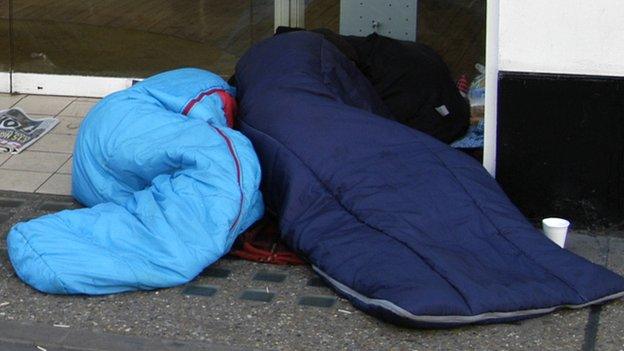Homelessness: Bishop wants more action from church
- Published
About 300 people are sleeping rough every week in Wales, says Bishop Cameron
More can be done by the church and others to tackle homelessness and social housing issues in Wales, the Bishop of St Asaph has said.
Rt Rev Gregory Cameron was speaking in Wrexham which, he said, had one of the highest rates of rough sleepers, about nine people for every 20,000.
About 300 people would sleep rough in Wales this week alone, he added.
Councils and the Welsh Government have pledged to build 20,000 affordable homes over the next four years.
Bishop Cameron said: "Somehow the church as a whole is not grasping this issue with the resolve they might.
"It is something that can really only be addressed through all of the community acting together to tackle the causes of homelessness."
A conference was held in Wrexham on Thursday that discussed using redundant church buildings and land to provide social housing and temporary shelters.
It took place at the Salvation Army Church and Ark Community Centre.
Volunteers said they had seen the number of people coming in for breakfasts, clothes and toiletries on Thursdays rise from single figures to 30 or 40 in the past 11 years.
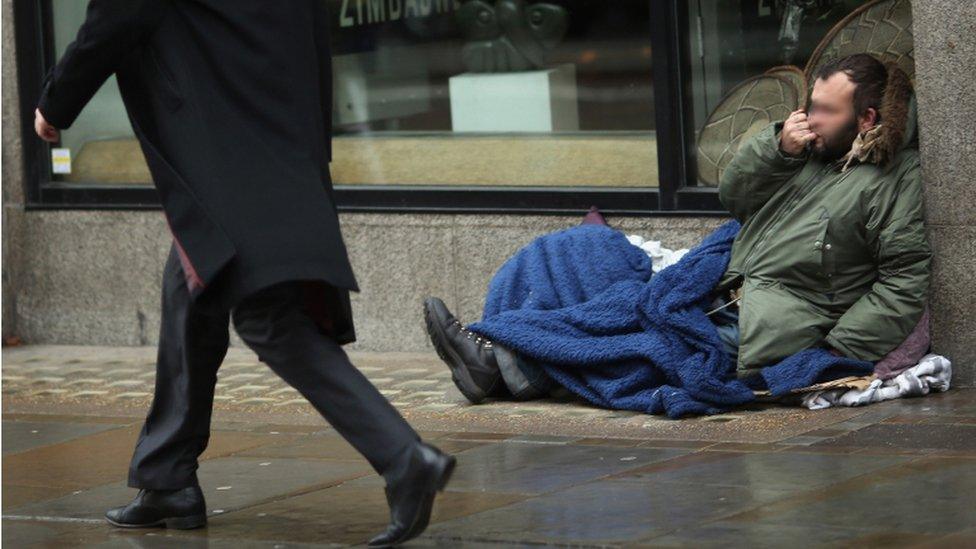
Housing Justice Cymru, a Christian action group, is working with the Church in Wales and others to turn surplus land into affordable homes as has happened in Bridgend, Merthyr Tydfil and Swansea.
It estimates about 200 faith buildings close annually and it wants a joined up approach among church groups to selling the land at market value but focusing on social housing developments.
Director Sharon Lee said with 80,000 people on waiting lists, external for social housing in Wales, the church could play its part to help.
Among the recent projects, 14 affordable homes replaced the derelict Carey Baptist Church in Aberkenfig, Bridgend county and 16 houses are being built on the site of former St Paul's and St Peter's Church, near Merthyr Tydfil.
Ms Lee said the Welsh Government was "doing good work" to combat the problem, but more could be done.
It introduced the 2014 Housing (Wales) Act, placing a duty on local authorities to work with people who are at risk of losing their home.
Housing Justice Cymru director Sharon Lee: "We are seeing an increase in homelessness and rough sleeping"
A Welsh Government spokesman said there was "more to do" although its legislation had helped to prevent homelessness for over 8,800 households since 2015.
"Across Wales there are 80,000 people on waiting lists for social housing and in all areas of Wales we are seeing an increase in homelessness and rough sleeping," said Ms Lee.
"And in the 21st Century that should not be acceptable in a country like Wales."
The Welsh Government said in January it announced nearly £8m for a homelessness prevention programme which helps to fund night shelters, hostels, outreach work, and advice services for people affected by homelessness.
"We are reviewing our policies regarding rough sleeping and the support available to tackle this problem as well as talking to organisations to explore housing first-style initiatives," the spokesman added.
Meanwhile, the Welsh Local Government Association (WLGA) said authorities were starting to build more affordable housing for the first time in years.
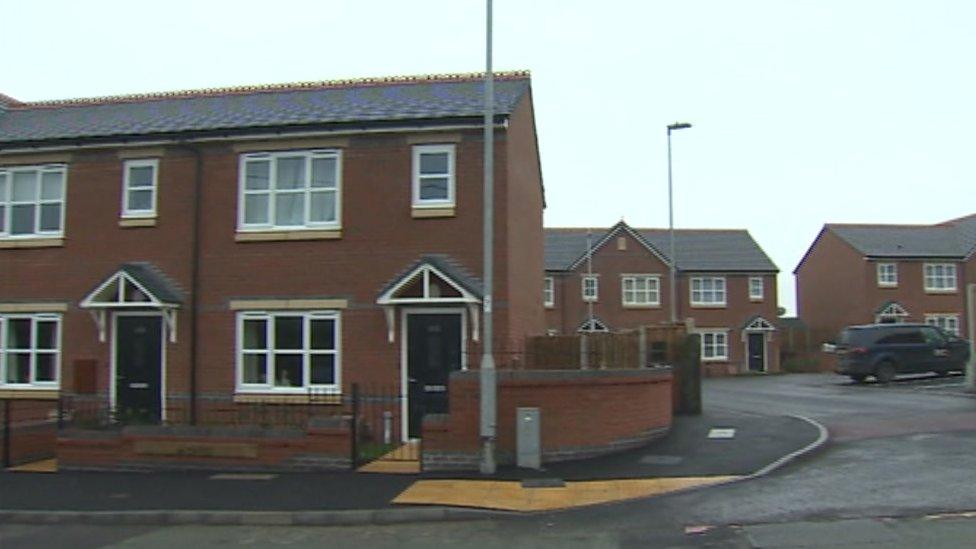
New social housing built by Flintshire council in Connah's Quay last year
Flintshire council plans to build 200 council homes and 300 affordable homes - the first new build council homes for more than 20 years.
The first homes opened in Connah's Quay last year and work is under way on new properties in Flint.
A WLGA spokesman said: "We are now seeing a number of councils beginning to build new homes for rent for the first time in a number of years and partnership working between councils and housing associations will continue to deliver many new homes."
He said a pact, between WLGA, Welsh Government and Community Housing Cymru, was launched in December to create 20,000 affordable homes by 2021.
He claimed the 2014 act led to a reduction in the use of emergency temporary accommodation across most areas of Wales, but said there was "no room for complacency as at the end of September last year there were still 1,923 households in temporary accommodation".
- Published11 February 2017
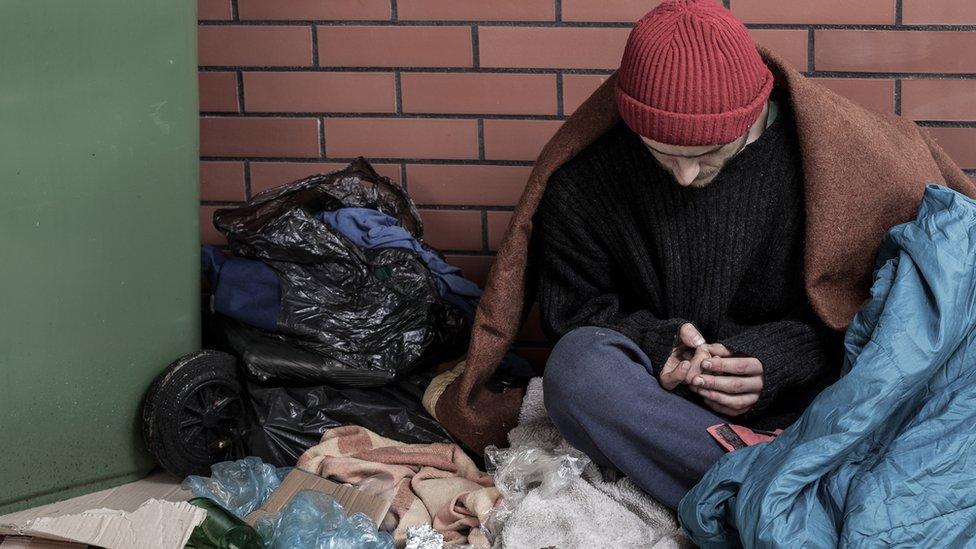
- Published3 November 2016
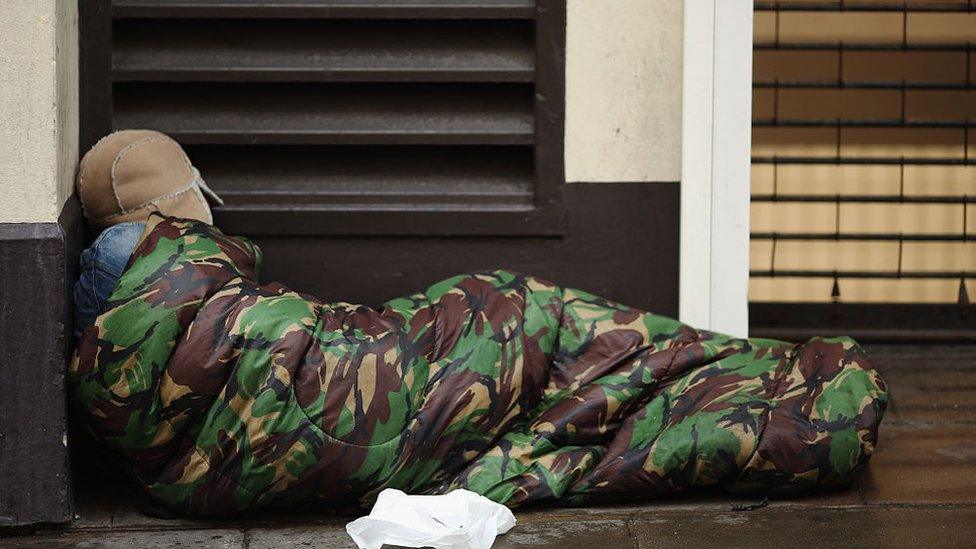
- Published27 April 2015
